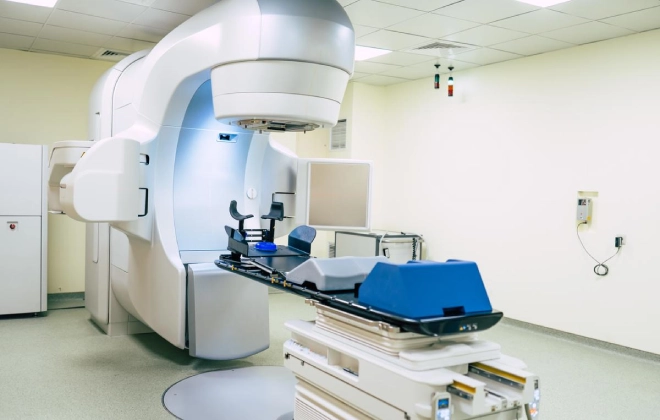Treatment Options for Pancreatic Cancer

If you or someone you know has been Diagnosed with Pancreatic Cancer, it’s important to learn about the various treatment options available. While no one approach is guaranteed to cure the disease, there are a number of treatments that may be able to improve prognosis and quality of life.
There is no one-size-fits-all answer to the treatment of pancreatic cancer, as each case is unique. Treatment options will vary depending on the stage of the disease, as well as other factors such as a person’s age and overall health.
However, there are several treatments that are commonly used for pancreatic cancer, including surgery, radiation therapy, and chemotherapy. In some cases, multimodal treatment approaches that use a combination of different therapies may be recommended. It’s important to work with your healthcare team to come up with the best treatment plan for you.
Diagnosis of Pancreatic Cancer
Pancreatic cancer is a serious illness that can be hard to diagnose. Early diagnosis is critical, as the cancer can spread quickly and be difficult to treat. Pancreatic cancer usually does not cause any symptoms in its early stages. As the cancer grows, it may cause pain in the abdomen or back, weight loss, jaundice, and fatigue.
There are several different ways that pancreatic cancer can be diagnosed. A physical exam, lab tests, and imaging tests may all be used to help detect the presence of cancer. A biopsy, in which a sample of tissue is removed and examined for cancerous cells, is often needed to confirm the diagnosis.
With early diagnosis and treatment, many people with pancreatic cancer can go on to lead long and healthy lives.
If you are experiencing any of the symptoms of pancreatic cancer, it is important to see a doctor right away.

Treatment Options Used for Pancreatic Cancer
There are a number of Different Treatment Options Available for Pancreatic Cancer.The best option for you will depend on the stage of your disease, as well as other factors such as your age and overall health.
- Surgery :
Surgery is often the first treatment approach used for Pancreatic cancer. The goal of surgery is to remove as much Cancer as possible. This can sometimes be difficult, as Pancreatic Cancer often spreads quickly and can be difficult to detect in its early stages.
There are several different types of surgery that may be used to treat pancreatic cancer. A pancreaticoduodenectomy, also known as a Whipple procedure, is the most common type of surgery used to treat pancreatic cancer. This procedure involves removing the head of the pancreas, as well as part of the small intestine, stomach, and bile duct.
Other types of surgery that may be used to treat pancreatic cancer include a distal pancreatectomy, in which the tail and body of the pancreas are removed, and a total pancreatectomy, in which the entire pancreas is removed.
- Radiation Therapy :
Radiation therapy uses high-energy beams, such as X-rays, to kill cancer cells. It can be used alone or in combination with other treatments, such as surgery or chemotherapy.
There are two main types of radiation therapy that may be used to treat pancreatic cancer: external beam radiation therapy and internal beam radiation therapy.
- External beam radiation therapy uses a machine to direct the beams of radiation at the cancerous tumour.
- Internal beam radiation therapy, also known as brachytherapy, involves placing radioactive material directly into the cancerous tumour.

- Chemotherapy :
Chemotherapy uses drugs to kill cancer cells. It can be used alone or in combination with other treatments, such as surgery or radiation therapy. Chemotherapy is often given intravenously (inside the veins), but it can also be taken in pill form.
There are a number of different chemotherapy drugs that may be used to treat pancreatic cancer. The specific drugs that are used will depend on the stage and grade of your disease, as well as other factors such as your age and overall health.
- Targeted Therapy :
Targeted therapy is a type of treatment that targets specific molecules involved in the growth and spread of cancer cells. This can help to kill cancer cells while sparing normal cells.
There are a number of different targeted therapies that may be used to treat Pancreatic Cancer. The specific drugs that are used will depend on the stage and grade of your disease, as well as other factors such as your age and overall health.

- Clinical Trials :
Clinical trials are research studies that test new treatments in humans. They are an important option for people with pancreatic cancer, as they offer access to new and innovative treatments that are not yet widely available.
If you are considering a clinical trial, it is important to speak with your doctor to learn more about the risks and benefits of participating. Clinical trials are typically conducted in phases, with each phase designed to test a different aspect of the treatment.
- Supportive Care :
Supportive care is a type of treatment that is focused on relieving the symptoms and side effects of Pancreatic Cancer. It can be used alone or in combination with other treatments, such as surgery, radiation therapy, chemotherapy, or targeted therapy.
Supportive care measures can include pain relief, nutrition support, and psychological counseling. These measures can help you to cope with your disease and treatment, and improve your quality of life.
Read More About- Is Pancreatic Cancer Curable?
Conclusion
If you or anyone you know has been diagnosed with pancreatic cancer, it is crucial to Consult with a doctor immediately to begin treatment. The earlier the cancer is detected, the better the chances are for successful treatment and survival.
Dr. Aditya Kulkarni and his team are committed to providing patients with the best possible care throughout their journey with cancer. If you have any questions or would like to schedule an appointment, please call us at +91 9028003123.

Dr. Aditya Kulkarni
MS, DNB, FRCS, MCh (Surgical Gastroenterology & GI Oncology)
Dr. Aditya Kulkarni is a Consultant of Laparoscopic and Robotic Gastrointestinal, Hepato-biliary-pancreatic, and Cancer Surgeon at the Renowned Oasis Surgery Clinic Pune.
